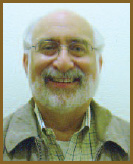|
First, there is a need to volunteer. Volunteers remain the life blood of professional organizations such as the Houston Geological Society. Without committee chairs and active committee members and officers, HGS either would not function or, alternatively, the cost of membership would be so high that individuals would no longer continue to be dues paying members. The costs associated with the paid staff necessary to replace our volunteers would be astronomical. At some point in our careers, we have all benefited from this organization or some other professional organization, directly or indirectly. HGS provides opportunities for training, professional development, and networking. It is only fair that we give something back, and that is more than just returning our dues payment of $24.00. Remember, that it is a small group of volunteers that search out the presenters for the multiple meetings that we conduct each month, organize short courses and major conferences, conduct our outreach programs, and aid in maintaining the business functions of the organization. There is a continual need to refresh the ranks of these individuals. Responsibilities change at the office. People are relocated. People retire. Consider giving a little so that we may all benefit!
Next, consider engaging yourself in mentoring. Each of us has something that we can pass on to the next generation. For those of us that are nearing the close of our professional careers there is much that can be shared. There are many intangibles that can’t be found in text books or publications that can be transmitted. Life’s experiences teach each of us many things and the passing of this knowledge from one generation to the next is paramount. I believe that it is particularly important in an industry such as ours.
The cycles that have persisted tend to have a developed a bimodal staffing model – one group quite experienced and one group very junior. It is not only how to use the tools of the trade and the specifics of one basin, play, or well that need to be transmitted. It is also how to be successful in one’s career. Things such as how to set career goals, select the next assignment, deal with management, and even give an effective presentation.
For those just beginning their careers, you are looking for mentoring but I believe that you, too, need to become mentors to those who are still in school. In your brief careers, you have already learned a great deal. You can effectively transmit the areas that one should focus on, the importance of soft skills, and simply what to expect after beginning your career. Yes, mentoring takes time and may not be considered part of the “day job,” but there are significant benefits to both sides of the relationship which I believe make it worth pursuing. It is clear what the benefits are to the mentee. For the mentor, I find that mentoring others is an opportunity to recharge and rethink. It has provided me the opportunity to go back and think about things that I had learned some 35 years ago in a new light. After all, much has advanced since I was in school. There are new techniques and concepts that can change the framework that we use. Thus, mentoring also provides the mentor an opportunity to grow and learn. Also, since we all learn from stories it provides an opportunity for mentors to have fun and simply tell stories. Consider mentoring, it is worth the investment of your time!
My third theme remains the need for continuous learning. There are new tools, new data types from new locations, and new concepts. Just think about the growth of unconventional resource plays, for both oil and gas, over the past decade. When I started in my career, fine grained rocks were considered a seal or possibly a source for hydrocarbons. Today, they are considered a potential reservoir as well. We are still learning how to exploit these reservoirs, just as we have been learning how to fully recover the resources in conventional reservoirs for more than a century.
Our efficiency and recovery rates have grown because of continued intellectual growth. Recovery in many fields now exceeds 50, 60, or 70%. These values are considerably higher than the original projections of 20 or 30%.
We have clearly expanded our understanding well beyond “anticlinal theory.” We have pushed beyond the shelf-break into deepwater. When I was in school, the idea that a sand could be present beyond the shelf did not exist. Now we are producing from deepwater. So what steps might someone take to pursue this goal? My approach each year has been to pick a topic that I would like to know more about. I read as much as I can on the subject, attend an occasional meeting on the topic and prepare myself to make a presentation. It has often been said that there is no better way to learn a topic than to teach, or in my case, present on it.
Not everyone may wish to go to the concluding step of presenting the results of their knowledge journey. However, I find that it requires that I organize my thoughts on a topic and merge the information available from many into my own, hopefully coherent, perspective that can be validated by others interested in the field. I am writing this while on a trip to Nigeria to kickoff a major mentoring program and our managing director has asked that each of the employees come back each day a little smarter than the day before. Clearly that is something we should each consider for our own development!
I hope that these suggestions are remembered, at least in part, and that you act on them. I believe that you and our geologic community will be better off.
Until next time...
|

 Three Things to Consider
Three Things to Consider